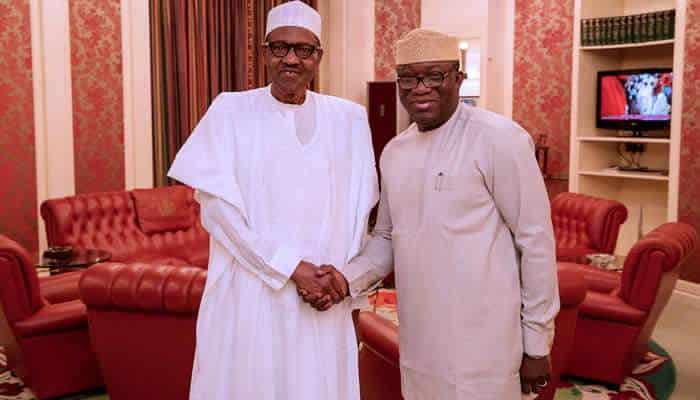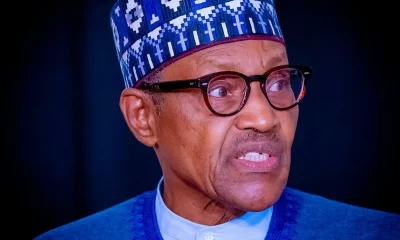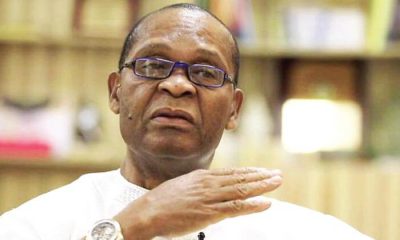Politics
Buhari Is Not Afraid, Must Be Commended For Rejecting Electoral Amendment Bill – Fayemi

The Ekiti State Governor and Chairman of the Nigeria Governors’ Forum (NGF), Kayode Fayemi has commended President Muhammadu Buhari’s decision to reject the Electoral Act Amendment Bill forwarded to him for assent by the National Assembly.
Fayemi said Buhari stood by the people in rejecting the bill and must be commended for his courageous stand despite pressures from many sides.
The Governor said just like him, President Buhari is someone that has tasted both direct and indirect primaries and needs no lecture on the pros and cons of each method.
He stated however that what the President did by withdrawing assent to the bill is to give political parties the freedom to decide how to choose their candidate and not necessarily putting one method over the other.
Fayemi made the submission on Tuesday during a chat with State House correspondents after meeting President Buhari at the Aso Rock Villa in Abuja.
Fayemi when asked by journalists if the Governors were happy with the decision taken by the President said: “I don’t know what you mean by governors being happy. At least as the governor who has gone through a series of elections, my election to office during my first term was via a direct primary that took place in all the 177 wards in my state. And my election to my second term in office was via an indirect primary. So, I’ve tested both. And I can tell you that it really doesn’t matter to any governor whether you have primaries via direct mode or an indirect mode.
“What is governors’ interest and concern is that opportunities are given for an inclusive process. And I think that is what Mr. President’s letter has brought out. Mr. President has not objected to direct primaries, neither has he endorsed indirect primaries, he has only said, be fair to all, let all options apply and what you decide should be determined by your own local and peculiar circumstances, being mindful of questions of security, finances, and internal democracy.
“So, I think we all should commend the courage of Mr President to stand with the people. And the President, you know, just like me, is not afraid of whatever mode you decide to use. When I chaired the primaries, the historic primaries that brought him in as a presidential candidate, I was the chair of that primaries in 2014. It was an indirect primary.
“But in 2019, when he was coming back, he came back via a direct primary. So, Mr. President has also tested both. And I don’t think it’s somebody to be lectured about the pros and cons of either processes. What is important is to ensure that whatever process you choose in your particular circumstance, still provides a process that is as free as possible. It’s not completely free process, but at least there is something that is called substantial compliance in electoral law. And if it meets substantial compliance.
“I think all of us should be happy with that. We shouldn’t really dwell too much on. There’s been this exaggerated expectation that direct primaries is going to provide all answers to whatever electoral challenges that we have faced. And we all know that that is false. Direct primary has its own challenges. Indirect primaries have its own challenges. A consensus approach is also not without challenges, but options should be provided. And whether governors are happy or not, it’s really immaterial to governors whether it’s direct or indirect.”












